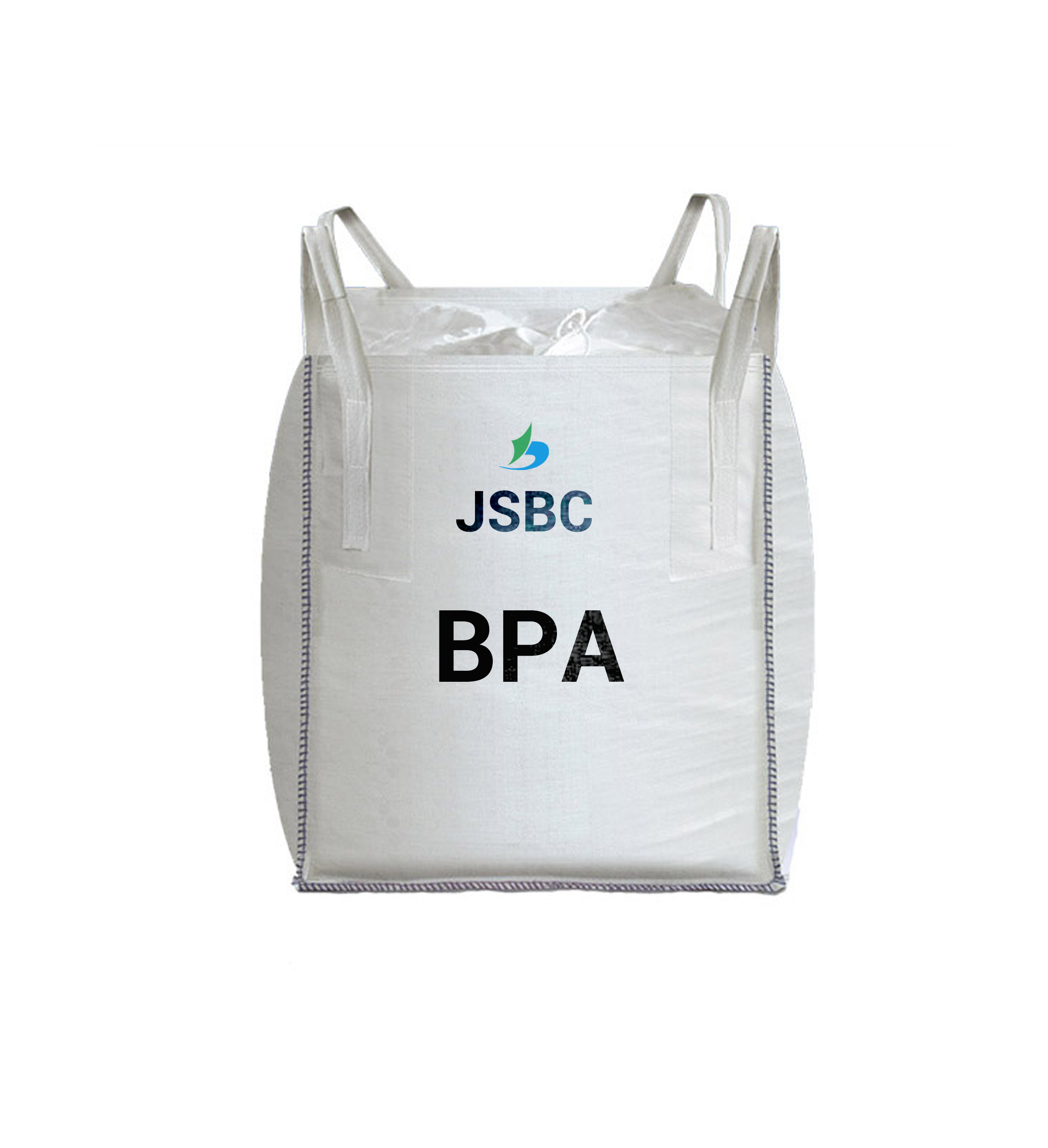- Overview
- Recommended Products
- Appearance: White needle crystal or flake powder, with a slight odor of phenol.
- Melting point: pure products 155-158℃, industrial products 150-152℃.
- Boiling point: 250-252℃ (1.733 kPa).
- Density: 1.195 g/mL (25/25℃).
- Flash point: 79.4 ° C.
- Solubility: Soluble in ethanol, acetone, ether, benzene and dilute lye, slightly soluble in carbon tetrachloride, almost insoluble in water.
Functional group: contains two phenol hydroxyl groups, chemical properties are active, the ortho-position of the hydroxyl group is very active, easy to be nitrated, halogenated, vulcanized, alkylation, etc. - Reactivity: BPA will decompose at high temperatures (180 ° C)
- High-performance polymers:
- Polycarbonate:
- Optical grade: Blu-ray discs, AR coatings
- Medical: Hemodialysis membranes
- Polysulfones:
- Aerospace composites
- Sterilizable medical devices
- Polycarbonate:
- Advanced epoxy systems:
- Electronics:
- Underfill encapsulation (flip-chip)
- PCB laminate dielectrics
- Composite:
- Wind turbine blade matrices
- Ballistic protection materials
- Electronics:
- Specialty derivatives:
- Flame retardants:
- Tetrabromobisphenol-A (TBBPA)
- Phosphorus-containing analogs
- Polyarylate:
- LCD backlight modules
- Laser welding applications
- Flame retardants:
BISPHENOL-A
Bisphenol A (C₁₅H₁₆O₂) is a diphenylmethane derivative serving as a crucial monomer in advanced polymer synthesis. This dihydroxy compound exhibits unique stereochemical properties enabling diverse macromolecular architectures.















